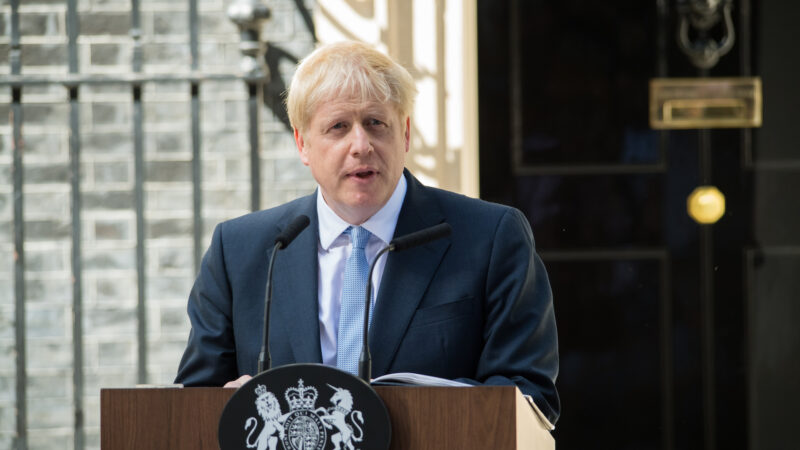
Welsh health minister Vaughan Gething recently pointed out a startling statistic: if Wales had had the same excess death rate as England, it would have seen 1,600 more deaths; and if England had had the same excess deaths rates as Wales, it would have experienced 24,000 fewer deaths. England has suffered more excess deaths than any other nation in Europe, the Office for National Statistics has confirmed. Although it is too early to know all the factors at work, it is clear that England’s experience of the first part of the pandemic has been different – and worse.
On July 1st, Leicester became the first area of the UK to experience a localised lockdown. It was no coincidence that this was in an English city. When Keir Starmer used Prime Minister’s Questions to ask Boris Johnson why Covid infection data had not been shared with Leicester and other councils, he was raising an issue that was only a problem in England. The Welsh Labour government had been making the same data available for weeks. It was only the Tory UK ministers who run England and had signed a contract with Deloitte that did not require them to share the data.
In Wales, public health officials have been at the heart of the local response to outbreaks. In England, central government has resisted giving them a role until the cost to public health and the economy could no longer be ignored. The Scottish government has now ordered some lockdown measures in Aberdeen, but the underlying infection rate is far lower in Scotland where – unlike England – the strategy has been to drive infections to minimal levels.
Doing politics during the pandemic is not easy. There’s good reason to think that voters won’t be too impressed by any politicians who seem to be ‘playing politics as usual’ during this difficult collective trauma. At the same time, Labour shouldn’t miss these important opportunities to talk about why England has suffered so badly. And while a good part of the blame will lie with today’s Tory ministers and those who have starved the NHS and social care of resources over the past ten years, an important part of the story is the way England has been governed for even longer.
Johnson was criticised for the UK death rate, and his leadership has undoubtedly been shambolic. Last week, Keir rightly highlighted the failure of test and trace and the urgent need to sort these out before the essential reopening of schools in September. But his Guardian article did not make clear that he was talking about England. It is the English system of test and trace, with its preference for using privatised centralised companies over local knowledge, that is failing. It is English schools where the problem is most acute – and Scottish schools don’t even go back on the same date.
England is the most centralised nation in Europe. Local government has fewer powers, less ability to raise its own finance, and less right to set its own priorities than anywhere else on the continent. For decades, a ‘Whitehall knows best’ mantra has defined the relationship between national and local. Labour funded the localities better and invested more in the most deprived regions. But, in truth, our party was not much keener to cede real power. One lesson of the pandemic must be that the next Labour government must be committed, top-to-bottom, to real devolution.
As I discussed at length on the recent Labour Future podcast, highlighting the English dimension is absolutely critical. Labour has the opportunity to point out that it is England, rather than the UK, that has had the worst Covid-19 performance of any European country. Only England suffered the Tory-Lib Dem NHS ‘reforms’ that destroyed a genuinely world-leading system of public health, fragmenting it and starving it of resources at local and national level.
Labour has the opportunity to make it clear that it is the way that England is governed, not just the people governing England, that is the problem. We need to set aside any reluctance to talk about England. There have been exceptions, of course. Ed Miliband pointed out last month the Welsh government’s approach to protecting jobs at AirBus, while the UK government has done nothing for AirBus jobs in England – though he didn’t quite say “England”.
England and the UK are not the same place. Labour has promised to empower local government, but when Keir Starmer is Prime Minister his writ will run no further than English local government. He will have no power to change local government policy in Wales, Scotland or Northern Ireland. The reality – arising directly from Labour’s own devolution settlement – is that on many other issues, including schools, colleges, universities, the NHS and social care, the UK Prime Minister can make policy for England. Labour should be proud that we delivered to Scotland and Wales, but this should mean bringing our language about England into line with reality.
This does matter. When leading Labour figures talk as though England and the union (or England and Britain) are the same place, it alienates potential supporters in Wales and Scotland. It means that Labour cannot highlight the differences between the different nations or how the experience of a Tory government, though damaging the whole of the UK, has been particularly harsh on England. Johnson didn’t win the last election in Scotland or Northern Ireland or – despite some gains – in Wales. He won in England. A Labour Party that doesn’t talk about England, or show that it understands how badly England is governed, will struggle to win England back.




More from LabourList
‘Labour council candidates – it’s tough, but all is not lost’
‘Labour won’t stop the far right by changing leaders — only by proving what the left can deliver’
‘Cutting Welsh university funding would be economic vandalism, not reform’